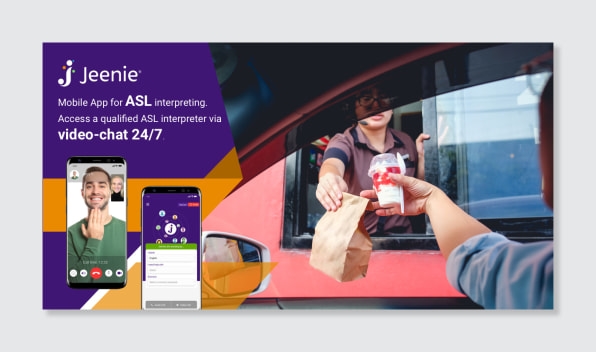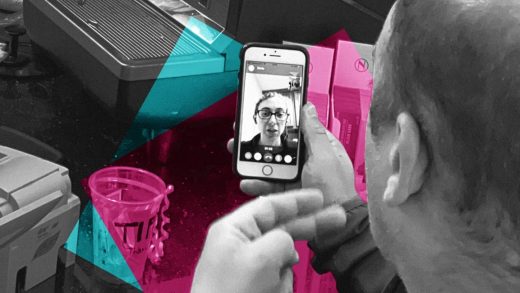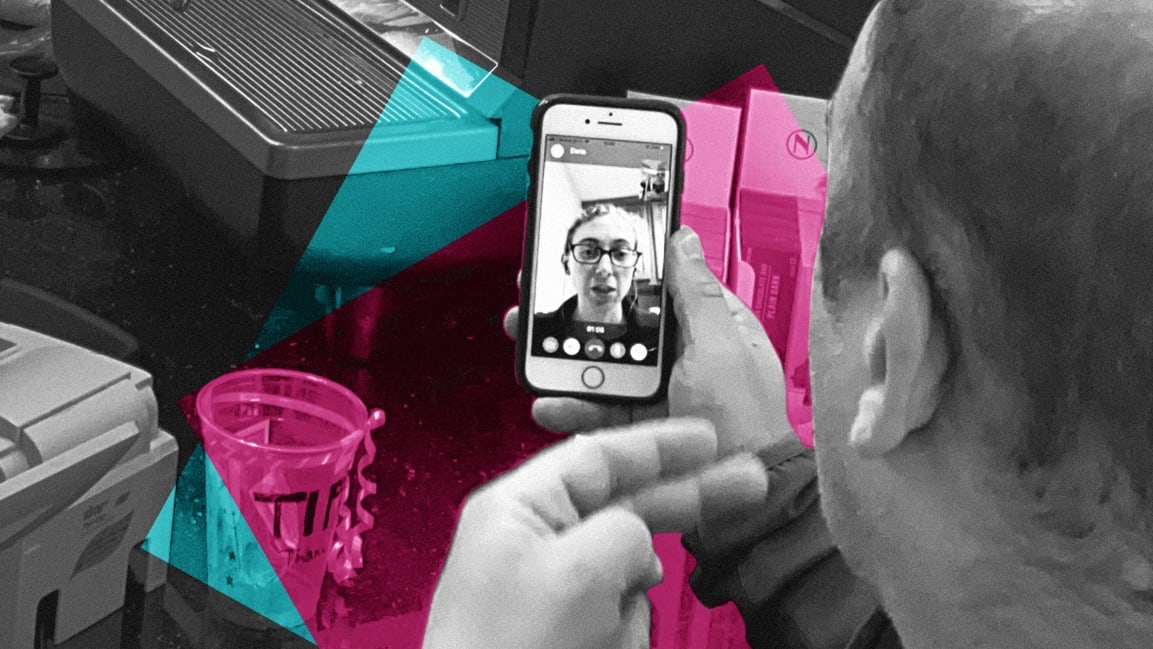This app gives deaf users an on-demand ASL interpreter
For someone who is deaf, communicating with a clerk at a retail store or non-ASL-speaking friend over dinner often involves laboriously writing notes. An app called Jeenie offers an alternative: Push a button, and a live ASL interpreter appears in a video call.
“It can be challenging to communicate in everyday life with people who are not fluent in ASL,” says Laura Yellin, a woman who is deaf who tested the app’s new ASL feature, which is launching now. “For example, dealing with an issue at the dry cleaners and needing to talk to a supervisor or manager can be tricky via paper and pen or typing on the phone back and forth. It makes it a lot easier to have an interpreter available for situations like that.”
The app previously offered live interpreters for some languages—hearing customers who need a translator who speaks Mandarin or Spanish, for example, can use Jeenie to pull up a video call with that translator while traveling. The founders realized that the deaf community didn’t have a similar option for everyday life. While it’s possible to text or make a three-way call using TRS—an old-school system that lets people who are deaf or hard of hearing type messages to an operator who can read them to a hearing person, and then type back the response, or a video relay service, which allows signing—there wasn’t a simple or affordable solution for in-person conversations.

After someone using the app chooses ASL as a language and pushes a button to start a video call, an interpreter will appear within a minute, at any time of day. During the conversation, the user may use one-handed signing, a shortcut that allows them to hold the phone or tablet with the other hand. The interpreter will speak loudly so the other person in the room can clearly hear.
“As we poked around in the language service provider world, we saw very expensive fees for in-person interpreters, $90 to $125 an hour, on average,” says Kirsten Brecht Baker, the company’s CEO and cofounder. Some other companies do offer video calls with ASL interpreters, but because they target business users, have fees that are too steep for day-to-day use, she says. Jeenie charges $1 per minute and also offers packages with lower rates. The company is currently working with around 100 ASL interpreters, who are paid half of the revenue that Jeenie generates each minute.
The company is interested in potentially working with medical offices, which are required to provide ASL interpreters regardless of size, and may not currently have access to high-quality, affordable interpreters. The American Disabilities Act actually also requires that any business or organization serving the public provide accommodation to deaf customers, though some businesses may not be aware of that requirement; Jeenie is also interested in working directly with businesses and finding government funding sources to help cover the cost of the service. “We want this to be super affordable,” Baker says. The developers also hope to expand to other sign languages, such as British Sign Language or Chinese Sign Language.
On a recent day, Yellin used the app to order coffee and dessert. “It was great because I could go back and forth with the barista and ask them for their recommendations without having to write back and forth,” she says. While it’s still faster to write in some situations—if she doesn’t have questions about the menu, for example, there’s no reason to have a long conversation—she says that the app is useful in many situations, including talking with her boss. “Having face-to-face conversations is so quick and easy,” she says.
(29)



